UNCLOS 1982: Vietnam's Contribution to Maritime Delimitation
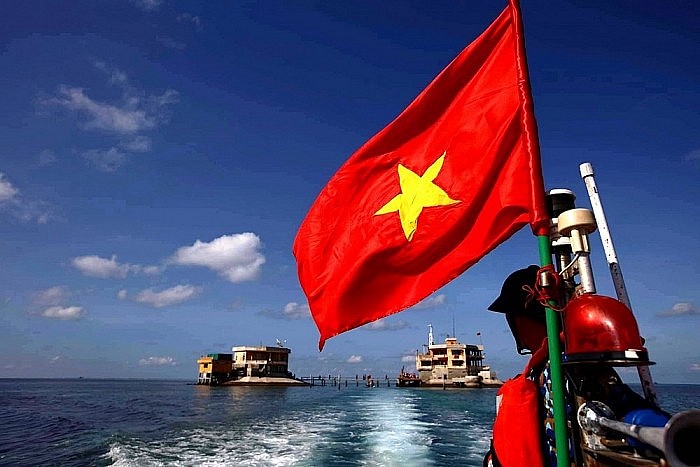 |
| Vietnam has shown flexibility in applying the theory of the single maritime boundary. Illustration. Photo: Hoang Truong |
Vietnam has joined the third United Nations Convention on the Law of the Sea since 1977. When countries were debating the method of delimitation, Vietnam in the group of G77 supported the principle of fairness in delimitation.
As a coastal country with many islands and archipelagos offshore, Vietnam has the advantage of applying the principle of delimitation according to the median line or equidistant. However, it has supported the principle of equity.
Vietnam believes that the principle of equity requires respect for each country's natural rights to the waters and continental shelf to which it is entitled, in accordance with current international law.
A principle is considered fair if it provides a just solution, on the basis of equal negotiation, to reach a solution that is consistent with international law and acceptable to the parties concerned.
Creative application
With the development of the law of the sea, on May 12, 1977, the Government of Vietnam issued a statement on the principle of determining Vietnam's maritime area, in accordance with the Convention. This is one of the earliest declarations under the Convention in Southeast Asia.
The declaration dated May 12, 1977, of the Government of Vietnam on the territorial sea, contiguous zone, exclusive economic zone, and continental shelf officially stated its position on settling maritime disputes.
That is resolving issues related to sea areas and continental shelves of each party through negotiation, on the basis of respecting each other's independence and sovereignty, in accordance with international law and practices.
Vietnam has creatively applied the principle of equity in delimiting its exclusive economic zone and continental shelf with Thailand in 1997, the Gulf of Tonkin with China in 2000, the continental shelf with Indonesia in 2003, and agreement with Malaysia, Cambodia and China.
In the delimitation of the Gulf of Tonkin, China insisted on establishing a common fishing area at the same time as the delimitation of the Gulf of Tonkin. They emphasized that without an agreement on this issue, it would be difficult to solve the problem of the Gulf of Tonkin.
Initially, Vietnam advocated separating the issue of fisheries from the delimitation of the Gulf. However, Vietnam is also aware that the failure to resolve the fisheries issue may hinder the resolution of the delimitation of the Gulf of Tonkin, including the boundary of the territorial sea, the exclusive economic zone, and continental shelf.
It is possible then that the entire Gulf will continue to be seen as an overlap between the two sides, and the situation there will continue to be destabilizing.
Vietnam has combined Article 74 and Article 62.3 to discuss with China to find a reasonable solution.
According to Article 62.3, when managing biological resources, the coastal state should take into account “the need to minimize economic disturbances in countries whose citizens often fish in the area or have contributed greatly to the search and inventory of seafood stocks”.
Fish stocks in the Gulf of Tonkin are related to Articles 63 and 123 on cooperation in the management of migratory fish stocks in the exclusive economic zones of the parties. Therefore, the delimitation of the exclusive economic zone can be carried out in two stages.
The two sides agreed to have a common fishing area south of the 20th parallel, where each side contributes a part of the exclusive economic zone. This agreement has a term of 12 years and is automatically renewable for three years.
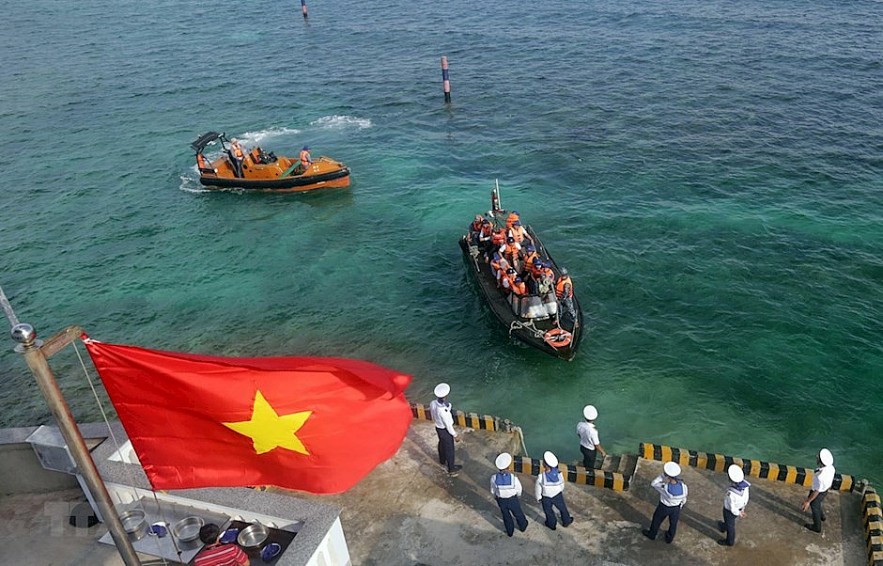 |
| Photo: VNA |
Flexible point of view
Vietnam has shown flexibility in applying the theory of the single maritime boundary. In the Gulf of Maine case between Canada and the United States in 1984, the ICJ recommended that a single boundary be applied to both the exclusive economic zone and the continental shelf where the coasts of the two sides were separated by no more than 400 nautical miles.
The 1997 agreement between Vietnam and Thailand was the first agreement on the only maritime boundary in the region. Subsequent decisions by international courts and arbitrations have confirmed this trend, such as Guyana and Suriname, Barbados, Trinidad and Tobago, Nicaragua and Colombia, Qatar and Bahrain, Romania and Ukraine.
However, Vietnam is willing to negotiate with Indonesia on a separate exclusive economic zone delimitation agreement. The existence of two boundary lines for two seas with different legal statuses is also a way to enrich the content of the principle of equity in maritime delimitation.
Vietnam's stance in settling disputes at sea, including maritime delimitation, is institutionalized in Vietnam's legal documents and consistently expressed through the international treaties that Vietnam has signed with relevant countries.
The nation's diplomatic strategy is to use negotiation to come to agreements on the basis of conformity with international law and practice of the United Nations Convention on the Law of the Sea 1982, applying the principle of equity, to achieve a fair solution.
This point of view is correct, reasonable, and in line with the common trends, practices in the region, and international law.
In particular, through treaties on maritime delimitation signed with concerned countries and agreements, Vietnam has demonstrated in practice the policy of settling all international disputes by peaceful means.
Vietnam has expressed its determination to join the international community in building a fair legal order at sea, enhancing development and cooperation at sea.
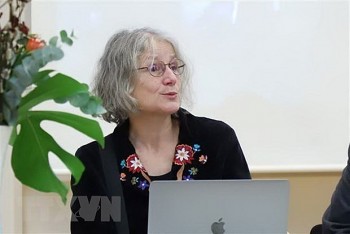 | On November 18, the Asia-Africa Institute of the German University of Hamburg organized an international conference on Indo-Pacific strategies and the South China Sea issue. |
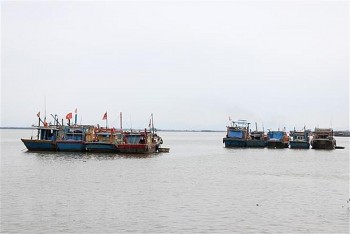 | Vietnam- Responsible Member of 1982 UNCLOS Over the past 40 years, Vietnam has affirmed itself as a responsible member of the 1982 United Nations Convention on the Law of the Sea ... |
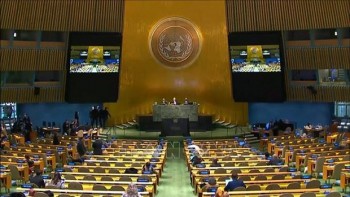 | UNCLOS Holds Historic Significance to All Humankind: Ambassador Vietnamese Ambassador Dang Hoang Giang underlined the historic significance of the 1982 United Nations Convention on the Law of the Sea (UNCLOS) to all humankind, ... |
Recommended
 Seas and islands
Seas and islands
Dialogue as Key to Settling Disputes and Advancing Law of the Sea
 Seas and islands
Seas and islands
RoK Navy Ship Pays Friendly Visit to Da Nang City
 Seas and islands
Seas and islands
Naval Region 5 Promotes Reading Culture, Fosters Patriotism
 Seas and islands
Seas and islands
Coast Guard Region 2 Command Hosts Philippine Coast Counterpart
 Seas and islands
Seas and islands
Vietnam - Thailand Navy: Coordination to Well Address Problems at Sea
 Seas and islands
Seas and islands
Honoring the Fallen: Incense Offering for the 37th Anniversary of Gac Ma
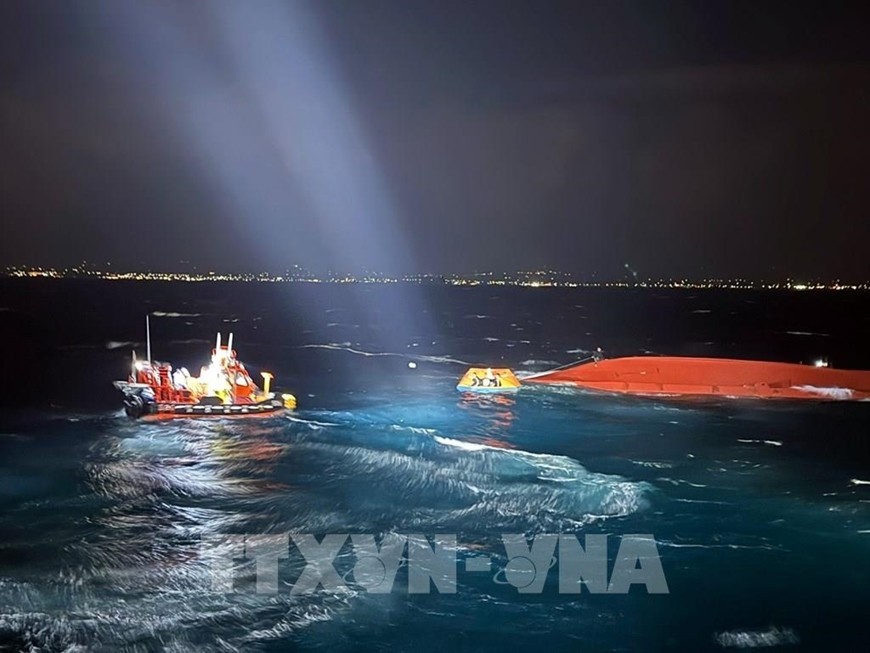 Seas and islands
Seas and islands
Three Vietnamese Fishermen Saved Off Jeju Coast
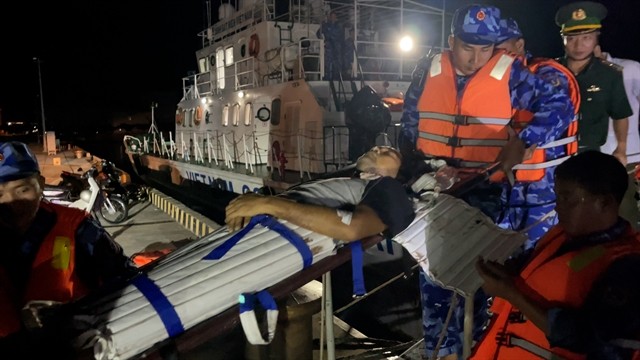 Seas and islands
Seas and islands


